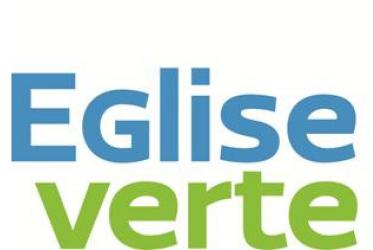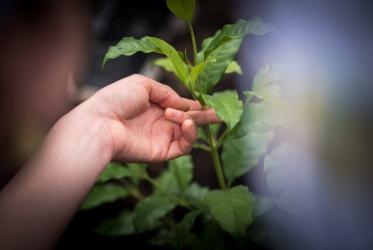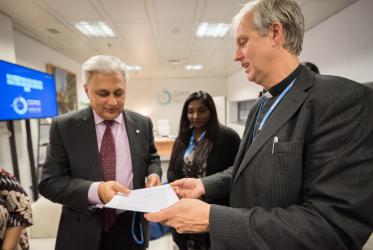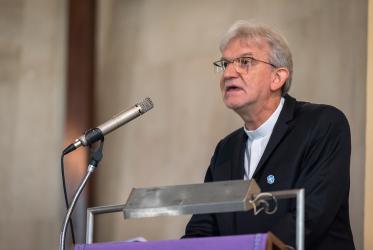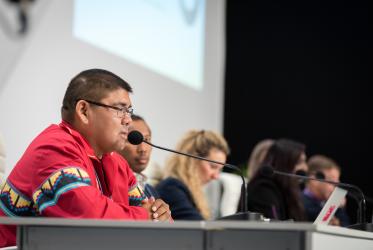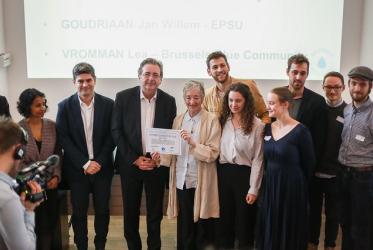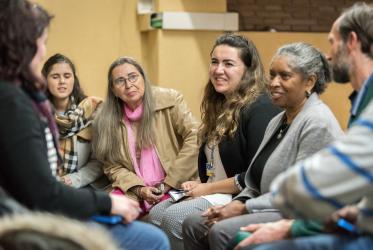Affichage de 1 - 20 de 111
Un colloque œcuménique de réflexion théologique sur l’écologie
18 Février 2021
Churches should use their voice on climate change
26 Février 2020
Interfaith group delivers message to COP25
10 Décembre 2019
“See humans as part of creation” in addressing climate emergency
06 Décembre 2019
WCC joins gathering of Blue Communities in Brussels
06 Décembre 2019




